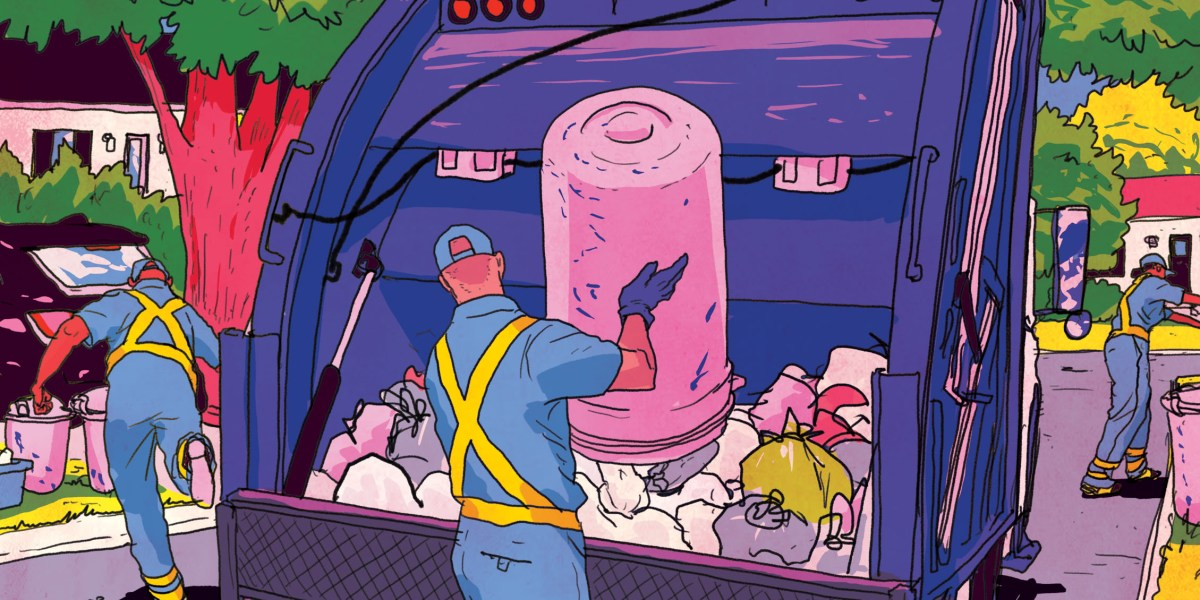The Download: AI-designed viruses, and bad news for the hydrogen industry
This is today’s edition of The Download, our weekday newsletter that provides a daily dose of what’s going on in the world of technology.
AI-designed viruses are here and already killing bacteria
Artificial intelligence can draw cat pictures and write emails. Now the same technology can compose a working genome.
A research team in California says it used AI to propose new genetic codes for viruses—and managed to get several of them to replicate and kill bacteria.
The work, described in a preprint paper, has the potential to create new treatments and accelerate research into artificially engineered cells. But experts believe it is also an “impressive first step” toward AI-designed life forms. Read the full story.
—Antonio Regalado
Clean hydrogen is facing a big reality check
Hydrogen is sometimes held up as a master key for the energy transition. It can be made using several low-emissions methods and could play a role in cleaning up industries ranging from agriculture to aviation to shipping.
This moment is a complicated one for the green fuel, though, as a new report from the International Energy Agency lays out. A number of major projects face cancellations and delays. The US in particular is seeing a slowdown after changes to key tax credits and cuts in support for renewable energy.
Still, there are bright spots for the industry, including in China, and new markets could soon become crucial for growth. Here are three things to know about the state of hydrogen in 2025.
—Casey Crownhart
This article is from The Spark, MIT Technology Review’s weekly climate newsletter. To receive it in your inbox every Wednesday, sign up here.
The must-reads
I’ve combed the internet to find you today’s most fun/important/scary/fascinating stories about technology.
1 Meta’s new smart glasses have a tiny screen
Welcome back, Google Glass. (NYT $)
+ Mark Zuckerberg says the devices are our best bet at unlocking “superintelligence.” (FT $)
+ He’s also refusing to let his metaverse dream die. (WP $)
+ What’s next for smart glasses. (MIT Technology Review)
2 DeepSeek writes flawed code for groups China disfavors
Researchers found that it produced code with major security weaknesses when told it was for the banned spiritual movement Falun Gong. (WP $)
3 The CDC is a mess
Its advice can no longer be trusted. Here’s where to turn instead. (The Atlantic $)
+ Its ousted director claims RFK Jr pressured her to approve vaccine changes. (Wired $)
+ Why childhood vaccines are a public health success story. (MIT Technology Review)
4 Google’s gen-AI image model Nano Banana is a global smash hit
Particularly in India. (TechCrunch)
+ Nvidia’s Jensen Huang really loves it, too. (Wired $)
5 OpenAI has found a way to reduce its models’ scheming
But they weren’t able to eradicate it completely. (ZDNET)
+ AI systems are getting better at tricking us. (MIT Technology Review)
6 Inside Texas’ efforts to keep vector-borne diseases at bay
The Arbovirus-Entomology Laboratory analyzes mosquitos, but resources are drying up. (Vox)
+ Brazil is fighting dengue with bacteria-infected mosquitos. (MIT Technology Review)
7 Financial AI advisors are coming
But companies are still cautious about rolling them out at scale. (WSJ $)
+ Warning: ChatGPT’s advice may not necessarily be financially sound. (NYT $)
+ Your most important customer may be AI. (MIT Technology Review)
8 China’s flying car market is raring to take off
Hovering taxis above the city of Guangzhou could soon become commonplace. (FT $)
+ Eek—a pair of flying cars collided during an airshow earlier this week. (CNN)
+ These aircraft could change how we fly. (MIT Technology Review)
9 Samsung’s US fridges will soon display ads
Wow, that’s not depressing at all. (The Verge)
10 Online dating is getting even worse
And AI is to blame. (NY Mag $)
Quote of the day
“How do educators have any real choice here about intentional use of AI when it is just being injected into educational environments without warning, without testing and without consultation?”
—Eamon Costello, an associate professor at Dublin City University, tells the Washington Post why he’s against Google adding a ‘homework help’ button to its Chrome browser.
One more thing

Your boss is watching
Working today—whether in an office, a warehouse, or your car—can mean constant electronic surveillance with little transparency, and potentially with livelihood-ending consequences if your productivity flags.
But what matters even more than the effects of this ubiquitous monitoring on privacy may be how all that data is shifting the relationships between workers and managers, companies and their workforce. It’s a huge power shift that may require new policies and protections. Read the full story.
—Rebecca Ackermann
We can still have nice things
A place for comfort, fun and distraction to brighten up your day. (Got any ideas? Drop me a line or skeet ’em at me.)
+ Find yourself feeling sleepy every afternoon? Here’s how to fight the post-lunch slump.
+ Life lessons from a London graffiti artist.
+ If you’re in need of a laugh, a good comedy is a great place to start.
+ Yellowstone’s famous hot springs are under attack—from tourists’ hats.

